Coding – where do I start?

17th July 2021
Learning to Code
Children learn the principles of coding in school and many schools offer terrific opportunities and experiences, but sometimes, it’s later in life that people want to acquire these skills. So where do you start?
Many people new to the world of coding enjoy face-to-face training so in the past we have recommended libraries, digital hubs and evening classes but with the Covid pandemic this has been almost impossible.
Therefore we have compiled our favourite online coding courses so you can find one to suit you.
Learning to Code for Absolute Beginners
1 Codecademy
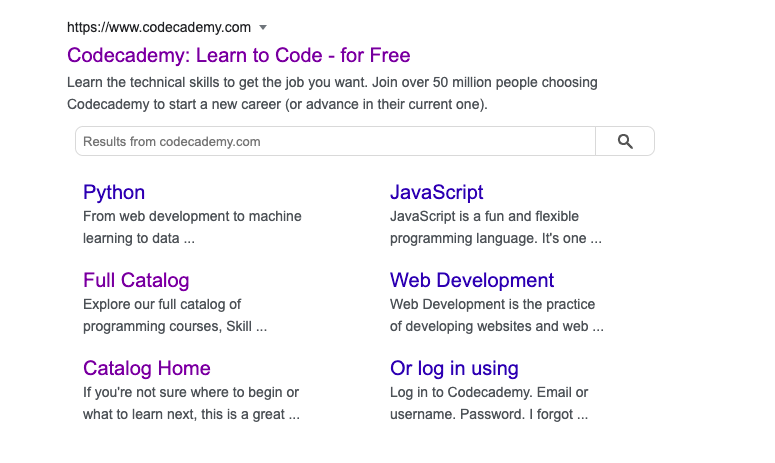
Codecademy is a popular learning platform with 45 million users worldwide. There is a limited but very good range of “beginner friendly” courses that are free to use. These act as a great general introduction to different coding languages.
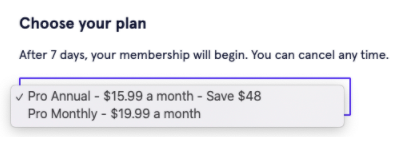
The majority of the site has more detailed courses labelled “Pro” which you have to pay for. At the time of writing Pro content starts at $15.99 per month. (£11.50 or €13.20).
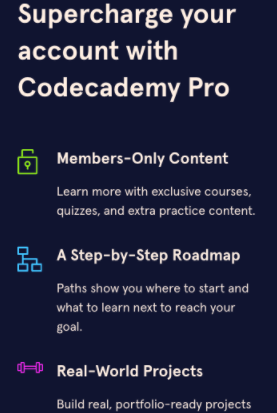
For those who aren’t sure of where to start, a free quiz helps identify an appropriate starting point.
Codecademy offers 12 coding ‘languages’ and 30 courses, it’s a great way to start learning. Once you have learnt some basic principles, the platform offers advanced topics and project based learning.
For beginners we liked:
- built-in text editor which provides instant feedback when you are learning to write code (other platforms require additional software)
- badges and pathways help give you a sense of progress and achievement
- free quiz that helps you identify your starting point.
2 Khan Academy
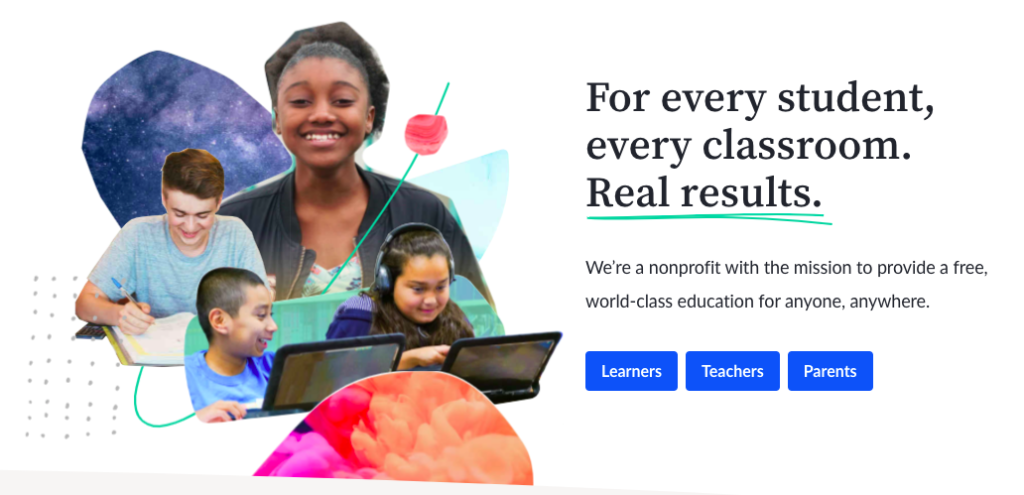
Khan Academy’s mission is to “change education for the better by providing free world-class education to anyone anywhere”
Khan Academy is a brilliant free resource that helps you to learn coding as an absolute beginner. Here is one example: Intro to HTML/CSS
Khan academy doesn’t just teach coding, it offers many other topics too, which means that the range of coding topics is more limited than Codecadmy and Treehouse but Khan Academy offers an easy to understand free starting point that lets you develop more advanced knowledge without worrying about the cost.
The courses have logins for students, parents or teachers (or all three!) so, if necessary, progress can be tracked by parents or school.
The ‘meet the professional’ videos are a nice feature which makes learning a coding language more relevant to various career paths.
For beginners we liked:
- free content
- parent, teacher, student approach
- meet the professionals videos.
3 Treehouse
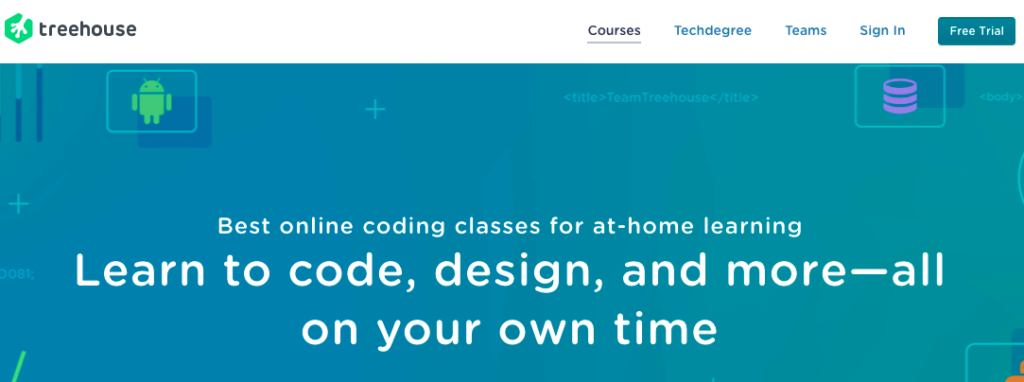
Like Codecademy, Treehouse offers a range of languages and projects to help you get started and then advanced topics and projects to build on your skills. The added advantage (or disadvantage!) are video tutorials. Some people will find them very helpful – the videos give a sense of human help like teachers in a classroom, others may feel they are a distraction. (We like them!).
There is limited free content available but once enrolled on the 7 day trial, a full library of courses is available.
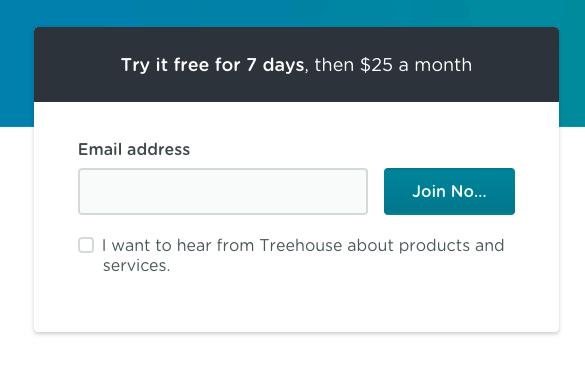
Treehouse also offers a free quiz to help you identify your starting point.
Additionally, there is a list of 24 topics or areas of interest. This is a nice feature that helps people use their interests to identify a starting point.

The Treehouse tech degree offers full courses which take 2 to 9 months to complete and are meant to offer an alternative to university. The cost is approximately $199 (£143 or €165 ) per month and gives opportunity to build a portfolio of work to showcase your skills.
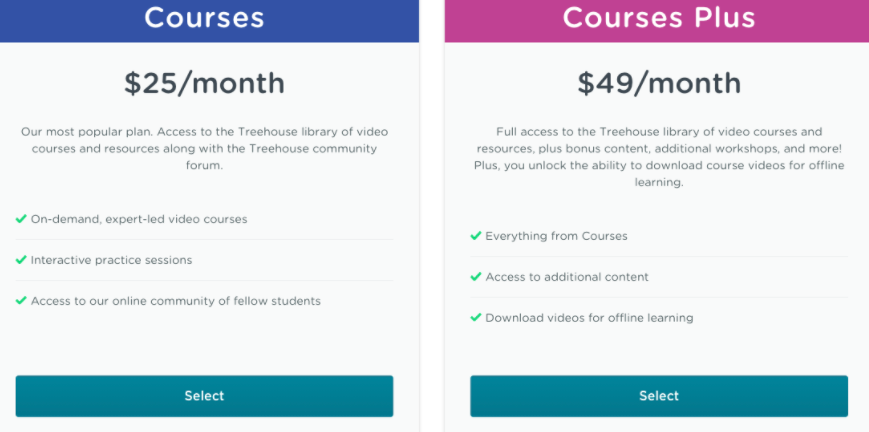
For beginners we liked:
- topics that you can use to decide what area appeals to you most
- learning tracks/pathways that guide you with your learning
- the video content
4 Udemy
Udemy offers a range of courses that have been produced by a range of different people. This means that not all courses have the same feel or branded experience. All courses are reviewed so you can see what people think of them. However, just like reviews for restaurants or hotels, a high rating or low rating from one person may not necessarily reflect your experience when taking the course.
Udemy’s courses are video based but offer additional resources such as articles and downloadable resources.
Here is an example of of an introduction to HTML/CSS – this has been taken by 225,000 students with 51,000 rating it, on average, more than 4 stars out of 5.
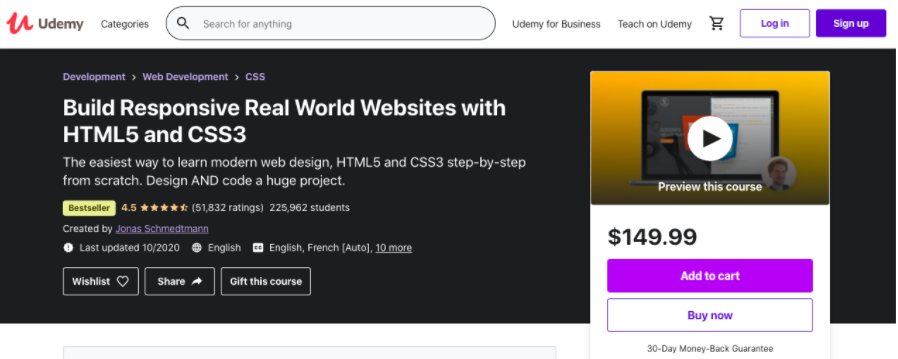
A nice feature is that you have lifetime access, so once you have bought it then there is no additional subscription. You can also buy the course for someone else and “gift it’ to them.
Many of the courses seem expensive but they reflect the time and effort that individuals have invested into producing the content. However, on many occasions, there are “ Flash Sales” with courses marked down from $149 ( £107 or €124 ) to $10 (£7 or €8).
We think that Udemy can be a bit of a lucky dip so wouldn’t necessarily recommend it as a starting point but the range of topics is vast and could enhance the learning of a topic. So if you got to grips with coding on another platform then Udemy would be great to help reinforce topics or take your knowledge and understanding further.
For beginners we liked:
- The one off payment with life-time access – no subscription required
- The rating system
- gifting facility
- Completion certificate
5 Code Avengers
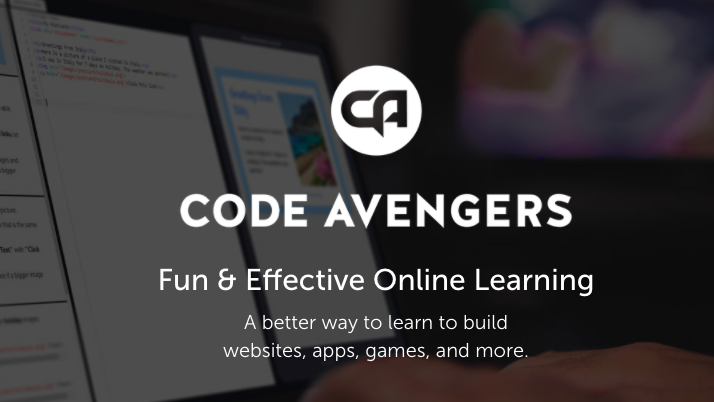
Whilst Treehouse and Codecademy are American owned online courses, it was nice to come across Code Avengers which is based in New Zealand. Not that this matters as coding is a universal language.
What’s nice about Code Avengers is that it offers learning opportunities for all ages and stakeholders.
Code Avengers has over 100 hours of courses teaching you how to build websites in HTML & CSS and games or apps in JavaScript.
There are courses for children aged 5-11; 10-15; 13-16.
There are resources and plans for “educators” parents, individuals and schools.
There are short term and long term courses.
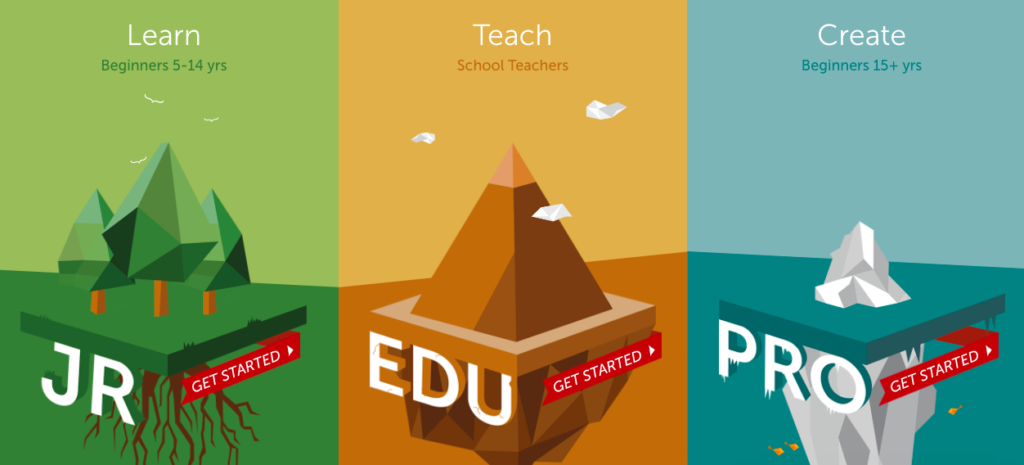
As with American and New Zealand courses, the school curriculum doesn’t match a UK curriculum but the resources and challenges are fun and engaging.
For beginners we liked:
- age related learning
- a wide range of courses
- resources for schools and parents.
Learning to code online has never been easier – have a go during National Coding Week and see where it takes you! If you want to know what it’s like to be a coder then check out this blog.